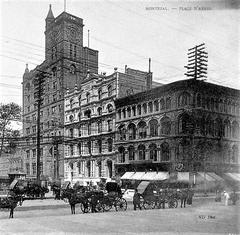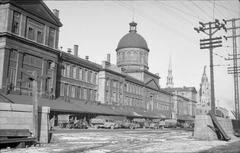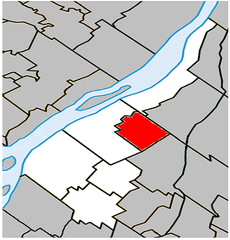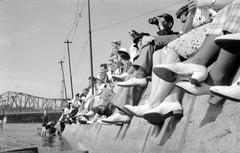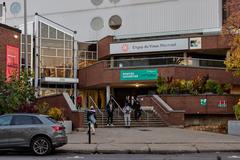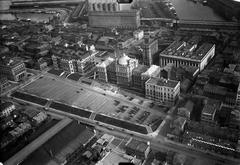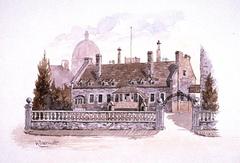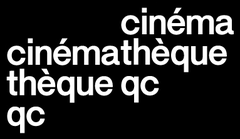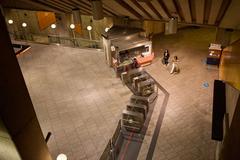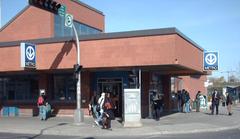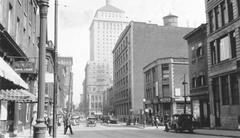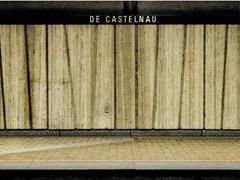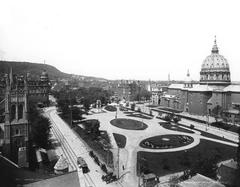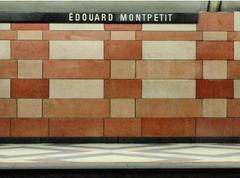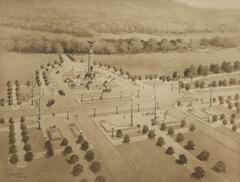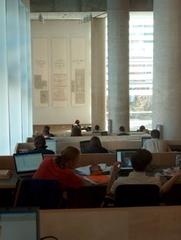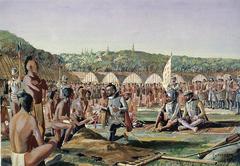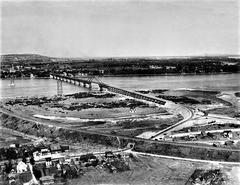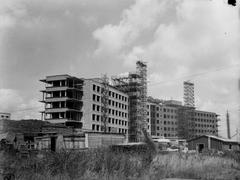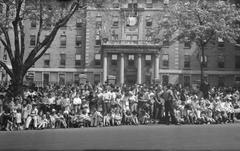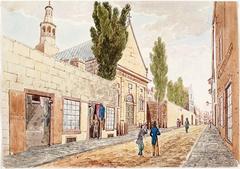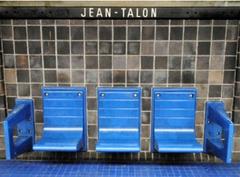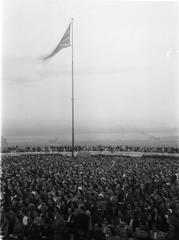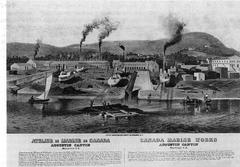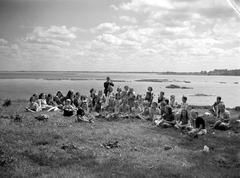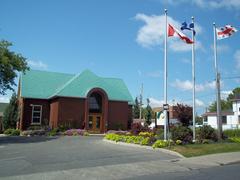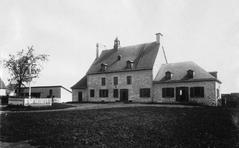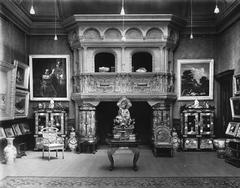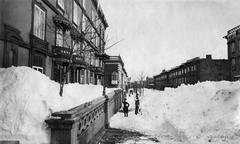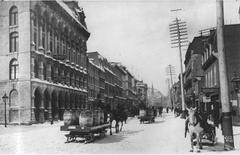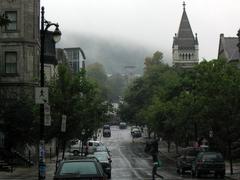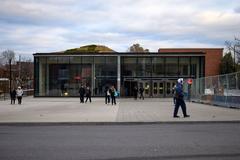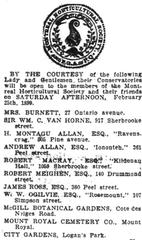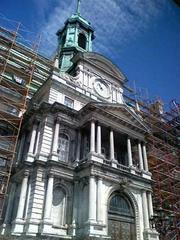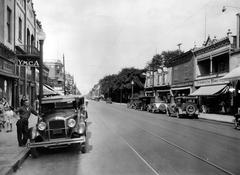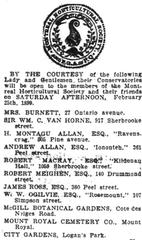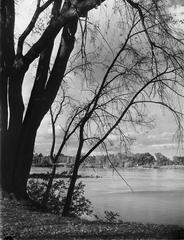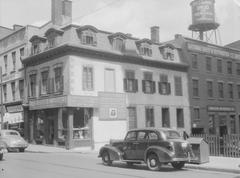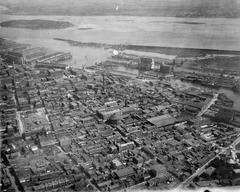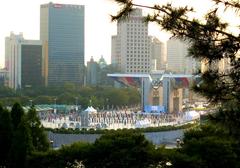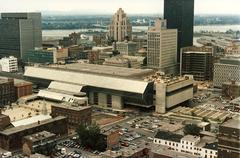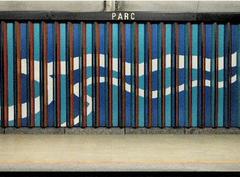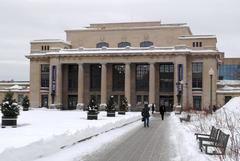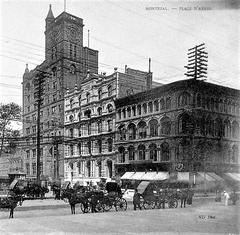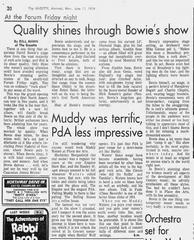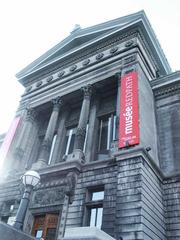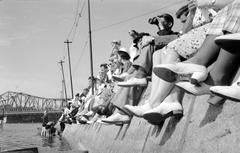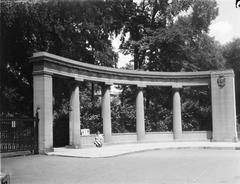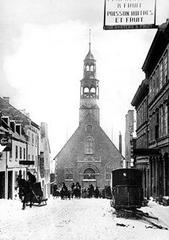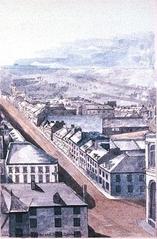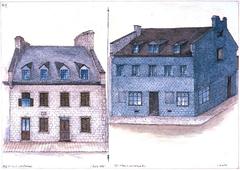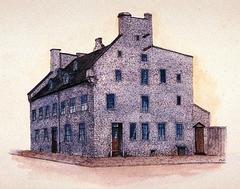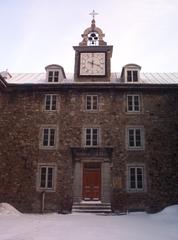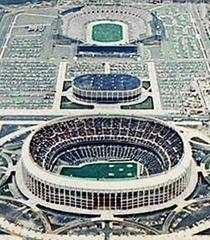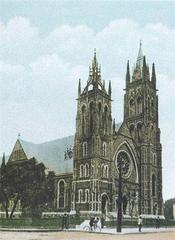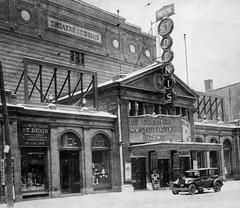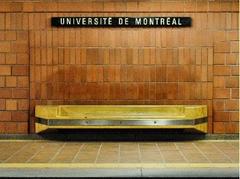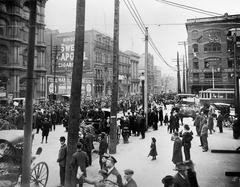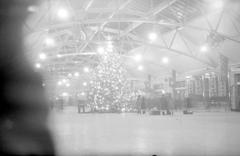
McGill University Libraries Visiting Hours, Tickets, and Montreal Historical Sites Guide
Date: 03/07/2025
Introduction: McGill University Libraries—Montreal’s Academic and Cultural Landmark
Situated in downtown Montreal, McGill University Libraries stand as a testament to both academic excellence and the city’s rich architectural heritage. Evolving from a modest collection in Molson Hall during the mid-19th century, the library system now encompasses over 11.78 million items across 13 branches, making it one of Canada’s largest and most research-intensive academic library networks. Visitors are invited to explore a unique blend of Victorian grandeur—epitomized by the historic Redpath Library, Canada’s first purpose-built university library—and innovative spaces such as the McLennan Library Building and the Cyberthèque digital hub.
Far more than a repository of books, McGill Libraries are dynamic cultural institutions. They house notable collections like the Canadian Architecture Collection and the Osler Library of the History of Medicine, and are at the forefront of digital innovation and sustainability, as seen in initiatives like the Fiat Lux Library renovation and the Sustainable Events Certification program.
This detailed guide will help you plan your visit—covering hours, ticketing, tours, accessibility, and nearby attractions—while offering insights into the library’s pivotal role in Montreal’s academic and cultural life. For the latest updates, virtual tours, and full visitor information, consult the official McGill University Libraries website and explore the Virtual Tour.
Table of Contents
- Early Foundations and Growth
- Architectural Evolution and Expansion
- Key Development Milestones
- Collections and Research Resources
- Digital Transformation and Accessibility
- Academic and Cultural Impact
- Visitor Information: Hours, Tickets & Tours
- Sustainable Events, Accessibility, and Community Engagement
- Frequently Asked Questions (FAQ)
- Plan Your Visit & Further Resources
1. Early Foundations and Growth
The roots of McGill University Libraries stretch back to the mid-19th century. The university’s first library collection, originally housed in the Arts Building (Molson Hall) from 1862 to 1893, served a rapidly growing academic community. As research and scholarship gained importance, the library’s holdings expanded in tandem with McGill’s evolving curriculum (Wikipedia).
By the late 19th century, increased enrollment and program diversification spurred the need for dedicated library space, paving the way for significant architectural and institutional developments.
2. Architectural Evolution and Expansion
Redpath Library and Early 20th Century Developments
A major milestone came with the construction of Redpath Library in 1893, funded by philanthropist Peter Redpath. As one of Canada’s first purpose-built university libraries, Redpath exemplifies Victorian ideals of academic grandeur, with dedicated reading rooms and ornate architectural features (McGill Archives).
Subsequent expansions, such as the 1969 Percy Nobbs extension, increased capacity for collections and introduced the Canadian Architecture Collection (Archival Collections).
McLennan Library Building and Modernization
The 1969 opening of the McLennan Library Building adjacent to Redpath marked the beginning of a new era. This central hub for Humanities and Social Sciences, along with the 2008 addition of the Cyberthèque—a modern, technology-rich information facility—demonstrates McGill’s commitment to collaborative, digital learning (Wikipedia).
Special Collections and Architectural Heritage
The Canadian Architecture Collection (CAC), founded by Professor Emeritus John Bland, preserves Montreal and Quebec’s architectural heritage through measured drawings, photographs, and archives from renowned architects, all housed in the Nobbs extension (Archival Collections).
3. Key Development Milestones
- 1862–1893: Library in Molson Hall
- 1893: Redpath Library opens
- 1969: McLennan Library and Percy Nobbs extension completed
- 2008: Cyberthèque digital learning space launched
- 2016: Formation of the ROAAr Group (Rare Books & Special Collections, Osler Library, Visual Arts Collection, Archives) (Wikipedia)
- 2020–2025: Fiat Lux Library Project: major renovations focusing on sustainability and accessibility (News Library McGill)
4. Collections and Research Resources
McGill University Libraries’ 13 branches across two campuses collectively hold over 11.78 million items (Wikipedia). Notable highlights include:
- Humanities and Social Sciences Library: Central hub for Canadian Studies, English and American Literature, and more.
- Osler Library of the History of Medicine: Canada’s leading medical history resource.
- Islamic Studies Library: Among the nation’s largest in its field.
- Rare Books and Special Collections: Home to the Lawrence Lande Collection of Canadiana (Wikipedia).
- Canadian Architecture Collection: A premier resource for architecture and urban planning (Archival Collections).
The library is an active member of key consortia and digital initiatives, including the Open Content Alliance and HathiTrust.
5. Digital Transformation and Accessibility
McGill Libraries have invested heavily in digital access, open scholarship, and digitization projects, contributing to the Internet Archive and HathiTrust. The Digital Scholarship Hub supports digital humanities and data science research (McGill Library Services).
Accessibility is a priority, with barrier-free design, adaptive technologies, and the ongoing Fiat Lux Library Project—all ensuring inclusive, flexible, and sustainable spaces (News Library McGill).
6. Academic and Cultural Impact
McGill Libraries are at the heart of university life, supporting research, teaching, and community engagement. They offer:
- Workshops & Consultations: For students, faculty, and the public (McGill Library Services)
- Public Exhibitions & Events: From rare book showcases to artist residencies (McGill Library News)
- Specialized Collections: Supporting scholarship in Canadian history, architecture, medicine, and the arts (Archival Collections)
7. Visitor Information: Hours, Tickets & Tours
Visiting Hours:
Most library branches are open Monday–Friday, 8:30 AM–9:00 PM, and Saturday, 10:00 AM–5:00 PM. Some branches offer extended hours during exams. For current hours, visit the McGill Library Hours page.
Tickets:
General admission is free. Special exhibitions or events may require registration—verify details on the official website.
Guided Tours:
Tours provide insights into McGill’s history and collections. Advance booking is recommended: Audiala Visitor Guide.
Accessibility:
All major facilities include wheelchair ramps, elevators, and accessible restrooms (Audiala Visitor Guide).
Location:
Centrally located at 3415 McTavish Street, the libraries are easily reached by Metro (McGill or Peel stations) and bus.
8. Sustainable Events, Accessibility, and Community Engagement
McGill Libraries are certified under the university’s Sustainable Events Certification program, ensuring environmentally responsible and inclusive events. Their initiatives have earned national recognition for sustainability in higher education.
Event Types:
- Academic lectures and workshops
- Rare book and special collections exhibitions
- Sustainability workshops and community gatherings
- Student-led events and peer learning sessions
(McGill Library events calendar)
Accessibility Features:
- Barrier-free entrances, ramps, and elevators
- Adaptive technology workstations
- Multilingual signage and tactile guides
(Quick Guide to Accessibility and Inclusivity)
Sustainability Practices:
- Zero-waste event guidelines
- Energy-efficient operations
- Support for sustainable transit options
(McGill Sustainability)
9. Frequently Asked Questions (FAQ)
Q: What are the McGill University Libraries’ visiting hours?
A: Hours vary by branch, but most are open weekdays 8:30 AM–9:00 PM and Saturdays 10:00 AM–5:00 PM. See the official hours page.
Q: Is admission free?
A: General entry is free. Some events/exhibitions may require prior registration.
Q: Are guided tours available?
A: Yes, and advance booking is recommended (Audiala Visitor Guide).
Q: Is the library accessible for people with disabilities?
A: Yes, with barrier-free design and adaptive technologies.
Q: How can I find out about upcoming events?
A: Consult the McGill Library events calendar.
Q: Can I borrow books if I am not a McGill student?
A: On-site access is available; borrowing requires university affiliation.
Q: Is photography permitted?
A: Allowed in public areas; restrictions apply in special collections.
10. Plan Your Visit & Further Resources
Explore more about Montreal’s cultural landmarks on Audiala. Download the Audiala app for seamless navigation and exclusive content. For updated hours, events, and visitor services, visit the McGill Libraries website, and follow @McGillLibrary on social media.
Recommended Visuals:
- Virtual tour of McGill University Libraries
- Images of Redpath Library, Cyberthèque, and rare collections
Summary & Visitor Tips
A visit to McGill University Libraries is a journey through Montreal’s academic, architectural, and cultural evolution. From exploring rare manuscripts and modern collaborative spaces to engaging in sustainable community events, the libraries offer a welcoming environment for all. Stay up-to-date by checking the events calendar and plan your visit with the Audiala app.
References and Further Reading
- Wikipedia
- McGill Archives
- Archival Collections
- News Library McGill
- McGill Library Services
- Audiala Visitor Guide
- Time Out Montreal
- Trylon Montreal
- McGill Library Events
- McGill University Undergraduate Admissions Visit
- Meet McGill Campus Tours
- McGill Sustainability









